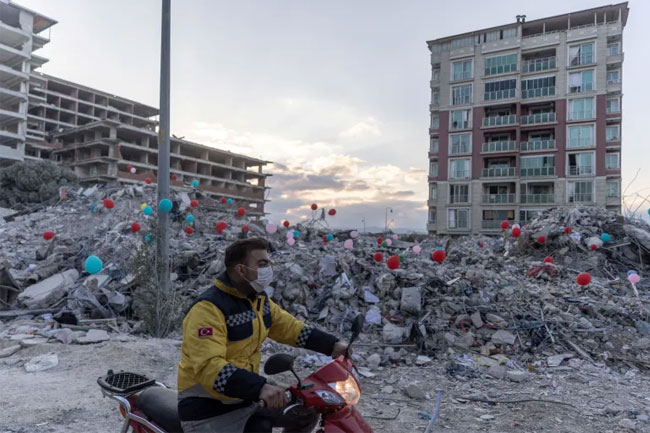Magnitude 5.3 earthquake jolts Turkey’s central Nigde province
A magnitude 5.3 earthquake has shaken the central Anatolian Turkish province of Nigde, the Kandilli earthquake monitoring centre said, just over two weeks after two devastating earthquakes that killed more than 50,000 people in Turkey and Syria.
Saturday’s earthquake had a depth of 7km (4.34 miles) and hit the Bor district at 1:27pm (10:27 GMT), the Turkish disaster management agency AFAD said. No casualties have been reported so far.
Vice President Fuat Oktay said response teams are on the ground to assess any damage.
“There is no negative situation at the moment. May God protect our country and our nation from all kinds of disasters,” he said on Twitter.
Bor is located some 350km (218 miles) west of the quake-ravaged Turkish-Syrian border region.
In the earthquakes that hit earlier this month, more than 44,000 people were killed in Turkey, where 11 provinces were affected, while the latest announced death toll in Syria was 5,914.
The earthquakes were followed by more than 9,000 aftershocks, and in Turkey, damaged more than 173,000 buildings and left nearly two million residents homeless, according to government data.
Nearly 240,000 rescue workers, including volunteers, continue to work in the 11 quake-hit provinces in Turkey. Some of the areas affected by the quakes were initially difficult to access but recovery efforts continue and casualty numbers are rising as they progress.
There have been no reports of survivors being rescued in recent days.
Fears of another major earthquake have been rekindled in highly populated Istanbul, but a prominent Turkish seismologist has reassured the risk “hasn’t increased”.
“The risk hasn’t increased because we are talking about completely different systems,” Dogan Kalafat, the director of the Kandilli Observatory’s Earthquake-Tsunami Monitoring Center in Istanbul, told AFP.
Some 20 million people in Turkey have been affected by the quake, while the United Nations estimates 8.8 million people have been affected in Syria. Less information has come from Syria where many people were already living in precarious conditions after years of civil war.
Source – Adaderana.lk

